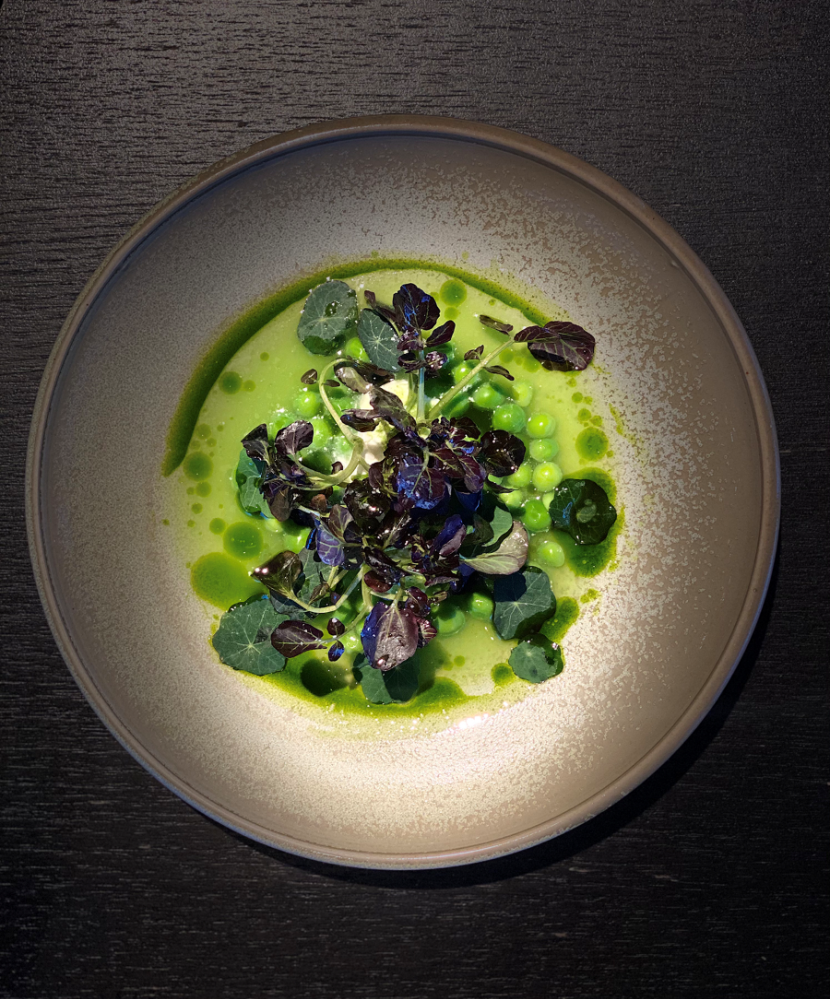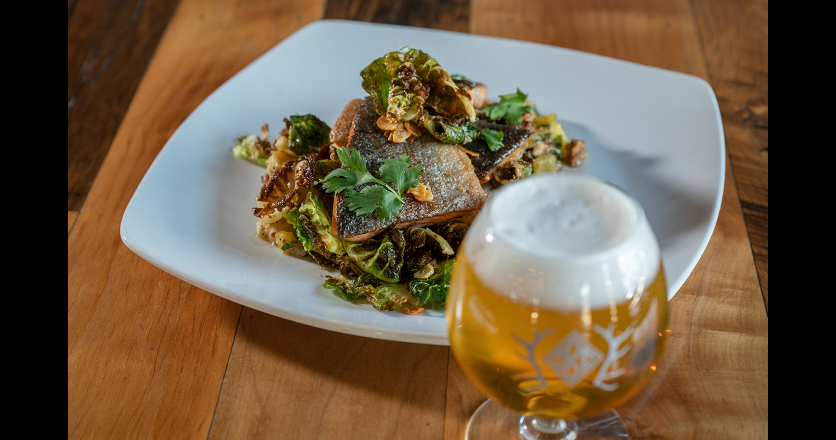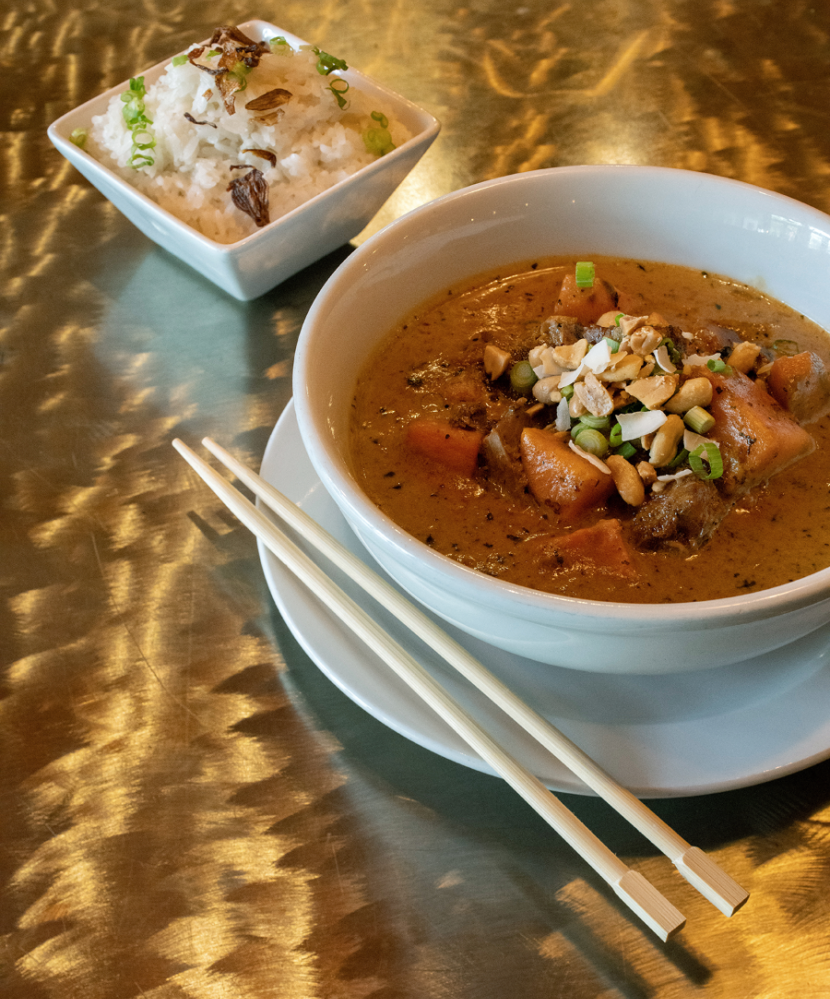The Dish of Community
Is it possible to capture the food personality of a community?
That’s what we set out to do when we conceived this story about the dining scene in the Roaring Fork Valley. But we quickly realized what a tall order that is,not only because of how different each town is from the others, but the rich variety of food cultures within them as well. There’s simply not enough room to tell the full story in every town.
One restaurant, one chef, or even one dish could tell part of the story, however. A restaurant might be a beloved longtime institution where everyone has gathered for decades, or a hip new spot that represents the town’s future. A chef could have started culinary trends adopted by others in the community, or be so innovative that others can only marvel. And behind many a dish is likely a good tale—potentially reflecting the spirit of the community in its history, sources, myriad flavors, preparation, and evolution. So, here’s a taste of the food stories of Aspen, Basalt, and Carbondale—with respect to all the richness of their complex personalities.
ASPEN | BOSQ
EARTHLY PASSIONS
Barclay Dodge gets very animated when he talks about food.The celebrated chef owner of Bosq is describing the dishes on the restaurant’s debut menu of the summer 2021 season. Opening night is a week away, and the menu, which will change frequently throughout the season, is still in R&D. In fact, our conversation takes place as the Bosq team is driving back from a day at Sustainable Settings, a biodynamic farm that’s one of Dodge’s primary sources for local ingredients: “We go down there to walk through the gardens, tasting things, getting inspiration, getting fired up,” he says.
Dodge’s voice swells and ebbs, like in song, as he explains in minute detail how to make sikil p’ak, a Mayan pumpkin seed dipping sauce he’ll serve with carrots roasted in their own earth. He excitedly describes repurposing venison scraps, left over from butchering the animal last fall, to make garum, which is like fish sauce that he’ll use to baste oyster mushrooms. And he’s especially proud of the menu’s foraged ingredients—pennycress (generally considered a common weed), serviceberry-branch grilling skewers, and spruce tips, used in a homemade cheese—to name a few.
Dodge forages year round, throughout a zone that extends from Independence Pass to Old Snowmass, rarely farther. “It’s what I have time to do before work,” he says, almost apologetically. When purchasing food for his summer menus, he sources almost exclusively from a handful of Roaring Fork Valley farms, plus regional distributor Farm Runners to fill in the few gaps. And whenever he can he uses every part of the plant or animal—eschewing waste and making for some of the most creative menu items in Aspen.
This passion for and dedication to local ingredients and producers has earned Dodge and Bosq many accolades (be sure to make reservations well in advance). But it also represents Aspen’s enduring character by artfully balancing elements of the town’s roots—ingredients mined from the mountains and grown on local land—with its more modern cultural attractions, which include creative, innovative dining and plating that’s no less than an art form (literally: Local ceramist Alleghany Meadows designs Bosq’s plates).
All of this comes together in the dish pictured here, made with 100 percent local ingredients, beautifully presented on a locally made plate. Housemade cheese, made fresh daily, is topped with fresh peas, fennel, and foraged watercress. Instead of being discarded, the pea pods are blanched, puréed, and strained—the pea water is used in the dish, along with dehydrated, powdered pea pods for garnish and a lilac water dressing.
“When I use local food, it’s for the flavor,” says Dodge, himself a product of Aspen. “We foraged all winter long; we were still out there connecting with nature. That’s who we are at Bosq—we’re inspired by what’s going on around us.”
Bosq | 312 S. Mill St., Aspen | (970) 710-7299 | Tasting menu only for summer 2021
BASALT | CAPITOL CREEK BREWERY
FAMILIAR WITH A TWIST
Gerald Andres had just gotten to the valley when I met him and the team at Capitol Creek Brewery in May. He was developing a new menu for the gastro-brewpub, which had just been acquired by High Country Brewing—part of Legacy Breweries, which in 2019 bought Aspen Brewing Company. “My philosophy is wanting to represent Colorado and the area we’re in, including local purveyors,” says Andres, who worked as a chef in restaurants in Vail, Beaver Creek, Steamboat Springs, and Eugene, Oregon, before landing in Basalt.
Retaining some favorites from the former menu, the new one is “familiar food with a twist,” he says. “It’s New American: a hodge-podge of multiple cultures that’s representative of Colorado.”
A little more elevated but still accessible. A growing mix of styles that are family friendly. That’s the direction Basalt itself is going in as the midvalley population expands—with immigrants from upvalley, downvalley, and out of valley—and the dining scene grows into its own. Willits Town Center, almost built out and with the addition of The Contemporary Center for the Performing Arts, has become a destination with an urban yet down-to-earth vibe, complementing the charm and history of downtown Basalt.
One of Basalt’s main attractions is its Gold Medal fishing waters—long stretches of which start on the Fryingpan and Roaring Fork Rivers from downtown. And so it’s fitting that Capitol Creek Brewery’s trout (though not caught locally, to be clear) represents the spirit of Basalt. Andres’s version serves the Colorado ruby red trout with crispy Brussels sprouts chips and warmed potato salad.
The dish is a harmonious combination of simply prepared ingredients whose flavors shine through individually but work well together. The trout, lightly seasoned with salt and pepper, is quickly seared in nutty brown butter (skin side down) and finished in the oven in five minutes. The leaves of the Brussels sprouts—a vegetable enjoying a renaissance, like Basalt’s dining scene—are deep-fried and tossed with fresh-made garlic oil and garlic. A premade potato salad offers com-forting hominess and hearkens to the valley’s past as a potato-growing powerhouse. Dressed with champagne vinegar, lemon juice, Dijon mustard, and parsley, it adds bacon for umami and is warmed before serving. Andres mounds the three main ingredients on the plate, the trout on top (skin side up), and spoons the remainder of the brown butter over it all. He grills lemon halves—caramelizing them a little, coaxing out some sweetness—and squeezes some of the juice over the dish, leaving the rest to the diner’s discretion. Garlic chips, which were heated to a golden tan to make the garlic oil, are the final touch, adding a tasty crunch that ties everything together.
Order one of the 12 brewed-in-house beers—Brewmaster Jerod Day recommends the Italian-style Bighorn Pilsner or Casa Bonita lager, which pair well with the citrus—and you’ve got yourself the ideal Basalt meal.
Capitol Creek Brewery | 371 Market St., Basalt | (970) 279-5723
CARBONDALE | PHAT THAI
BALANCING ACT
Mark Fischer has a disclaimer to make about Phat Thai: Many of the ingredients are not locally sourced. One of the valley’s original farm-to-table chefs, who set the standard for regional sourcing with Six89, Fischer explains the challenges of meeting that standard—especially with Southeast Asian cuisine in the mountains of Colorado.
You can’t buy shrimp paste or galangal locally, he notes. And rice? “It comes from Thailand—they do it better.” As for meats and vegetables that are available locally, Fischer uses those sources when they have products to sell—he has relationships with Nieslanik beef, Two Roots Farm, and Sustainable Settings, for example. But while some of Phat Thai’s sources might change with the seasons, its year-round menu precludes the volume of local buying that restaurants with more frequently written menus do.
“You make the best decisions about the menu based on what makes the most sense,” says Fischer. “At the end of the day it’s a business and has to be sustainable— and sustainability runs on a lot of different levels.”
When Fischer was writing the original menu for Phat Thai (which opened in 2003), its first iteration was as authentically Thai as possible, with as much local sourcing as possible. But true Thai was often too spicy, or otherwise didn’t mesh with the American palate. So, Fischer tweaked the menu to make it accessible to a broader population, like creating milder, more subcontinental curries. Accommodations were made with sourcing, too.
“If I can’t buy local, then instead of a 100-mile menu it becomes a 300-mile menu.”
Take the Massaman lamb curry, Phat Thai’s most popular dish. Its genesis, Fischer explains, was when Wendy Mitchell (who currently owns Meat & Cheese and Hooch) had some goat meat—what was originally used in the dish before it even became Thai—to sell from her farm in Paonia. But goat meat sources became few and far between, and most people prefer lamb anyway. Today, the lamb sometimes comes from Rock Bottom Ranch (and occasionally goat meat is used), but the default is Colorado lamb with a year-round market. As for the other ingredients, sweet potatoes are sourced locally when possible and the curry paste (one of six) is made fresh in house.
Like Phat Thai’s cuisine, the Carbondale community is lively, diverse, inspired, and creative. Its dining scene has come a long way from its traditional ranching roots, yet maintained a widespread, steadfast dedication to local food—with many local chefs and restaurateurs having worked in Fischer’s kitchens (including The Pullman in Glenwood Springs).
Phat Thai, like Six89 before it, hosts many community events and fundraisers, Fischer adds. “We try to keep our restaurants engaged, and it’s not just about buying local food, it’s supporting local causes,” he says. “That’s another thing that makes Carbondale and Phat Thai kind of click together.”
Phat Thai | 343 Main St., Carbondale | (970) 963-7001








